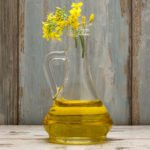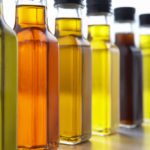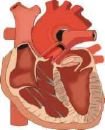For the one out of every three adults in the US with hypertension, medication is almost a given. There’s an amazing array of possible medications to keep blood pressure under control — diuretics, ACE inhibitors, beta-blockers, alpha-blockers, calcium channel blockers and so on. Unfortunately, though these various drugs do a reasonable job of pushing down blood pressure readings, they also can cause serious complications and come replete with a list of side effects ranging from fatigue, insomnia, and depression to impotence, gout, diabetic episodes, fatal liver problems, heart disease (ironically), and permanent kidney damage.
New research out of the University of Manitoba in Winnipeg, Canada, has uncovered a surprising natural treatment that may help control hypertension without incurring the high cost or potential danger of drugs. Plus, the treatment seems to prevent or at least moderate the impact of kidney disease, which typically leads to high blood pressure and concomitant cardiovascular complications. The treatment originates with the humble yellow garden pea, a key ingredient in Indian dal and other vegetarian favorites. The research team fed small amounts of pea protein hydrolysate extracted from yellow peas to rats for eight weeks, and by the end of that time, the rats showed a 20 percent drop in blood pressure compared to rats on a regular diet.
Since kidney disease usually leads to hypertension, and most people who have chronic kidney disease actually die from the resultant cardiovascular complications of high blood pressure, the scientists intentionally bred rats that had a severe type of kidney disease to see how the pea protein would impact them. And they discovered that not only did the pea protein lower their blood pressure, but it also increased urine output by 30 percent, indicating a significant improvement in kidney function since those with kidney damage often have impaired urine flow and so can’t rid the body of toxins. It also increased the presence of a key protein in kidney tissues.
Study director Rotimi Aluko said, “In people with high blood pressure, our protein could potentially delay or prevent the onset of kidney damage. In people who already have kidney disease, our protein may help them maintain normal blood pressure levels so they can live longer.”
Since the “subjects” in this study had pre-existing kidney disease, it still isn’t clear if the treatment will work on those who have hypertension without kidney disease, but the researchers concur that it certainly seems probable. A clinical trial with hypertensive humans is now underway and hopefully will answer that question.
In any event, it looks like a non-pharmaceutical intervention, free of side effects, might gain a foothold in the mainstream approach to controlling both hypertension and kidney disease in the near future. “What we seem to have here is sort of a natural approach to treating this disease, as opposed to the normal pharmacological approach,” said Dr. Aluko. “We’re talking about an edible product, not a drug, which can help to reduce blood pressure and, at the same time, reduce the severely negative impact of kidney disease.”
The research team predicts that the pea powder will be ready for market in just a few years, but warns that in the meantime, eating peas for dinner won’t do the trick. The protein needs to be isolated and activated with enzymes. Yellow peas by themselves are ineffective because their protein content is low and is bound to carbohydrates. The process for extracting and purifying concentrated protein from yellow peas incorporates water and enzymes. The net result is the concentrated protein hydrosylate that the researchers found effective.
Now here’s the punch line, the company that manufactured the pea protein used in this study — the enzyme-activated protein that’s “not yet available,” is the same company that makes the enzyme-activated pea protein hydrosylate I use in my Nutribody Protein and Private Reserve Superfood formulas, which I’ve described in past newsletters. As I’ve pointed out before, yellow pea protein has enormous benefits as a protein source in combination with rice protein, as it’s hypoallergenic, easily absorbed by the body, easy to digest and cholesterol-free, and unlike other protein sources, doesn’t lead to aminoacidemia or intestinal toxemia. And now, it turns out, it also may be anti-hypertensive and beneficial to the kidneys.
:hc












Hm, this is very interesting. It seems weird to me that we have all these drugs today that are addictive and cause other health issues when remedies and cures are all over the place in nature. It also seems that the natural cures are more effective, though I always thought that they were probably less potent and therefore less effective it doesn’t seem to be the case. It seems like instead of taking all these medications we could be just looking into living healthier and being more aware of our diets and getting recommended daily amounts.
I’m pre dialysis with diabetes what can help me
Asparagus extract has worked
Asparagus extract has worked for a lot of people! A couple of different forms out there.
Stan, check out /diabetes/health-program-blood-sugar-levels
An FDA advisory panel just
An FDA advisory panel just recommended yesterday that the warning label for Covidien’s Optimark and GE’s Omnisca—drugs in the family of medications known as gadolinium-based contrast agents (DBCAs)—be updated to restrict their use in patients with severe kidney disease because of the potential for an increased risk of nephrogenic systemic fibrosis (NSF). NSF causes thickening of the skin and organs. GBCAs carry a strong “black box” warning. This site has good information on this issue: gadolinium-mri dot com/index dot html
Jon, is there a difference
Jon, is there a difference between the other protein powders that use green peas and rice protein versus yours? I tried a pea and rice protein powder for a few weeks that I'm pretty sure wasn't yellow peas and even though I felt it was helping my muscles, it made my eczema much worse. I started getting more itching and rashes on my arms and legs mostly. I'm not sure why it caused that.
Hi Brenda:
There are just
Hi Brenda:
There are just too many variables to answer here. Since Jon first started combining rice and yellow pea protein, a number of manufacturers have tried to copy what Jon did – even stealing the content from his website and sticking it on their sites as if they wrote it. They source their ingredients from different places, of course, and add other ingredients to the mix so that it looks different, and that can produce entirely different results depending on what they do. Or it just might be that you don’t respond well to one of the proteins. No matter how hypoallergenic an ingredient is, at some point you’ll find someone who’s allergic to it. As Jon has pointed out in his newsletters, some people are allergic to the sun, and others to water.
Hope that helps.
I would love to get off
I would love to get off Diovan and a diuretic, even though they are keeping my blood pressure down to near normal levels. Is it possible that the products of yours that you mention would be of some benefit, without waiting a few years for the Winnipeg study group ?
Read The China Study for tons
Read The China Study for tons and tons of research on what we could do by diet alone to reduce risk of heart disease, cancer, etc. etc. etc. Still reading. Changing my ways.
Hi Trevor,
For obvious
Hi Trevor,
For obvious legal reasons, we cannot diagnose or prescribe for specific medical conditions…merely provide information. But that said, many people have used non-pharmaceutical means to reverse seemingly intractable conditions. Check with your physician to see if they will work with you to test alternative means to reduce your dependence on blood pressure medication, while still keeping your numbers down.